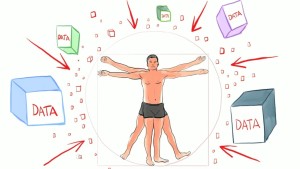 Wellness programs which seek to improve employees’ health have become very popular and financial wellness programs are also picking up steam; but lost in the move to help people to be healthier and more financially fit is the concern about data privacy. As reported in the Guardian and the Wall Street Journal (subscription required), data collected by wellness providers are not protected under HIPAA and the wellness providers may indeed see a business in pooling and selling this data.
Wellness programs which seek to improve employees’ health have become very popular and financial wellness programs are also picking up steam; but lost in the move to help people to be healthier and more financially fit is the concern about data privacy. As reported in the Guardian and the Wall Street Journal (subscription required), data collected by wellness providers are not protected under HIPAA and the wellness providers may indeed see a business in pooling and selling this data.
Perhaps lost in the glow of trying to help and even incent people to be healthier and better prepared for retirement leading to less stressed and more productive employees is the fact that so much data is collected about employees, data that is very valuable to third parties or could be misused by employers. Not only do wellness programs collect what seems like innocuous information like reading habits, hobbies and favorite charities, they can also collect genetic testing that suggest whether a person will be obese. Some programs are using credit scores to predict an employee’s health. According to the Guardian, “…data companies may allow employers to do indirectly what they cannot do directly.”
Many defined contribution plans and their advisors are using financial wellness firms to help their employees to improve their financial picture and better prepare them for retirement but most do not think about protecting the privacy of the employees’ data who might assume that, like health care information, it cannot be reused. And in order to personalize professionally managed investments, some firms and advisors are asking the DC record keeper for information about the participant. To predict plan health, firms will need to analyze sensitive data like health care claims. And in the age of information, robo advisors and fin-tech companies are aggregating a person’s entire financial picture to help them better manage their money. Do you think anyone else might be interested in viewing this data?
So while no one is suggesting that we stop helping people through health and financial wellness programs, we should be aware of the risks of the data collected trying to help these people is protected and not used in a manner that was not intended and could be harmful.


